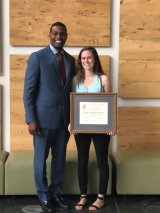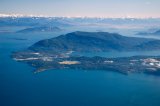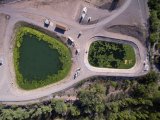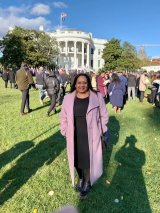Search Perspectives
Filter By:
- Jenna Hartley
- Radhika Fox
- Sara Eaves
- Alan Thornhill, Ph.D.
- Amanda Sutton
- André Wade
- Bitta Momeni
- Calvin Yahn
- Cameron Hodges
- Carlton Waterhouse
- Carmen Torrent
- Charles Lee
- Chip Gurkin
- Christine Gonnelli
- Cindy Newberg
- Clayton Batko
- Courtney Johnson
- Danelle Lobdell
- David Cash
- Dr. Sala N. Senkayi
- Dr. Tonya Nichols
- Eliana De Leon
- Elina Bravve
- ELN Green Team
- Evonne Marzouk
- Frederick Thompson
- Gayle Hubert
- Giovanna Olivares-McLaughlin
- Grace Robiou
- Hilary Clark
- Hunter Pates
- Jake Krauss
- Janet McCabe
- Jason Sacks
- Jeanne Briskin
- Jennie Romer
- John Foster
- John Goodin
- John V. Thomas
- Jorianne Jernberg
- KC Becker
- Lauren Duffy
- Lauryn Joyner
- Marcia Anderson, PhD
- Marianne Engelman-Lado
- Maureen Gwinn
- Michael Regan
- Missy Haniewicz
- Rhina Lara
- Rosemary Enobakhare
- Sandra Rivera
- Sarah Coefield
- Scott Mansfield
- Shayna Sellars
- Sherri Comerford
- Steph Bertaina
- Sukayna Al-Aaraji
- William Wheeler
Displaying 1 - 5 of 5 results
-

Lead in Private Well Water and its Impacts on Children's Health
There is no safe level of lead. Lead can be present in drinking water without any noticeable changes in color or odor. It is the responsibility of private well owners to test their water for lead and to take appropriate measures to mitigate exposure.
- Date:
- By: Sara Eaves
-

From Teacher to Author: How Climate Literacy Guided My Career
Early in my career I realized that shifting the mindset of students in my classroom, especially on a social norm that valued consumerism over environmentalism, was a challenge with context and nuance far beyond my classroom walls.
- Date:
- By: Jenna Hartley
-

Reducing Water Pollution from Power Plants
This action protects our nation’s vital water resources that support safe drinking water, agriculture, and healthy communities while providing greater certainty for industry.
- Date:
- By: Radhika Fox
-

Researching Improvements for Wastewater Lagoons in Small, Rural and Tribal Communities
Lagoons are mostly found in small, rural, and Tribal communities that face disproportionate environmental justice concerns. These are some of our most vulnerable communities and often low income or communities of color are disproportionally impacted.
- Date:
- By: Radhika Fox
-

The signing of the Bipartisan Infrastructure Law was historic. But our work is just getting started.
Congress delivered big and in a bipartisan way. Now it’s EPA’s turn to help steward these resources, especially the grants and forgivable loans that will have a lifechanging impact on disadvantaged communities.
- Date:
- By: Radhika Fox
